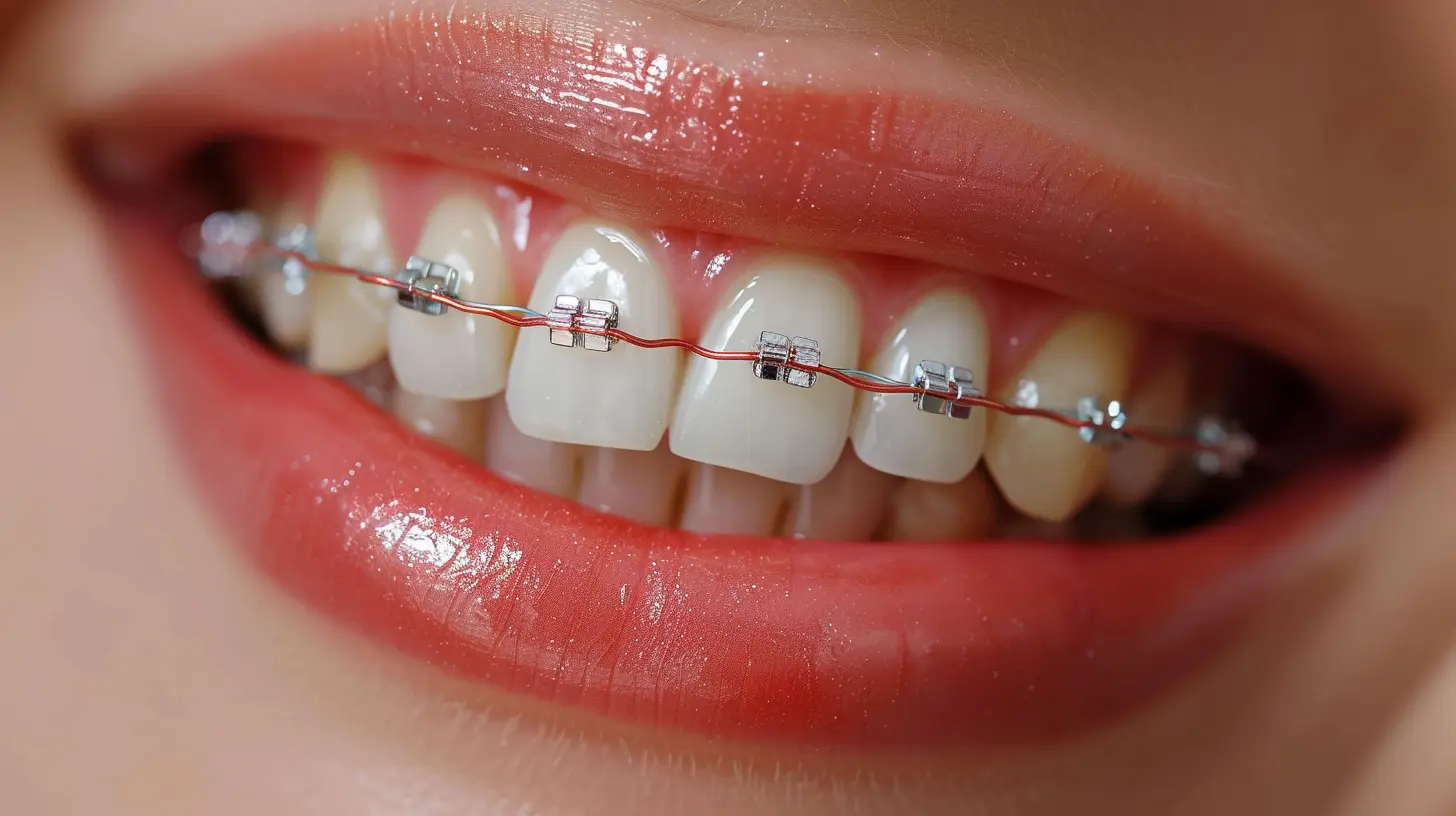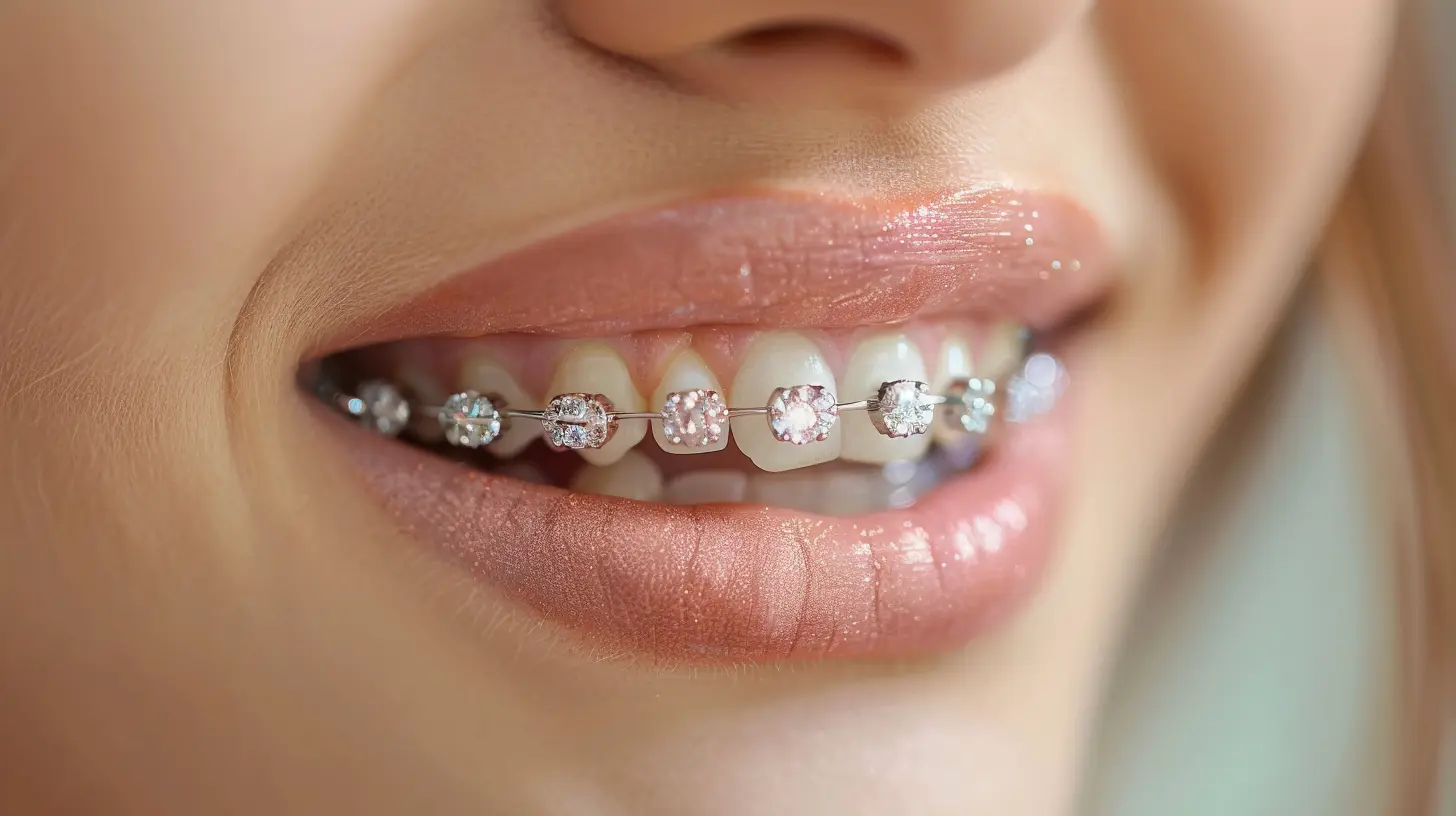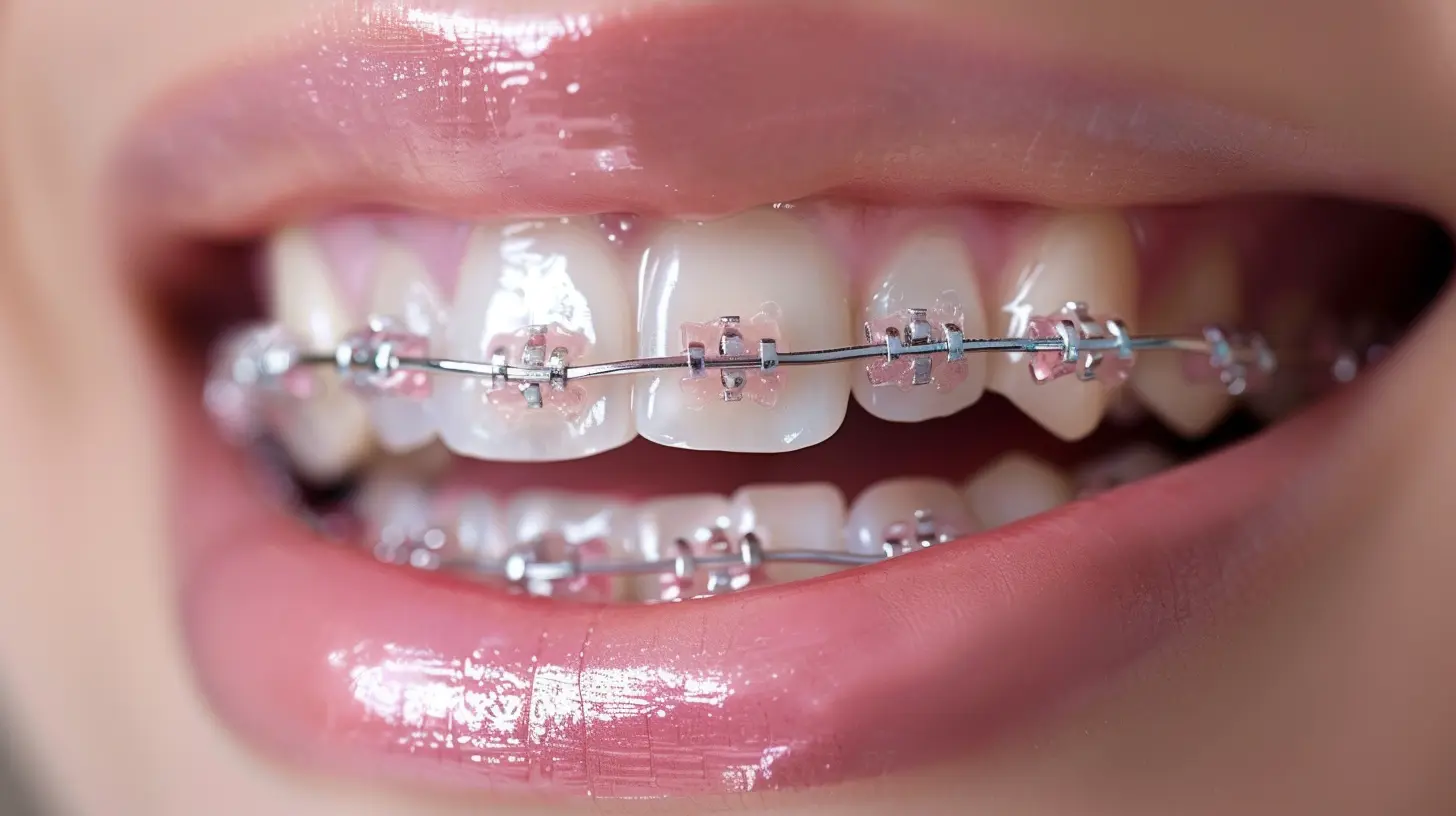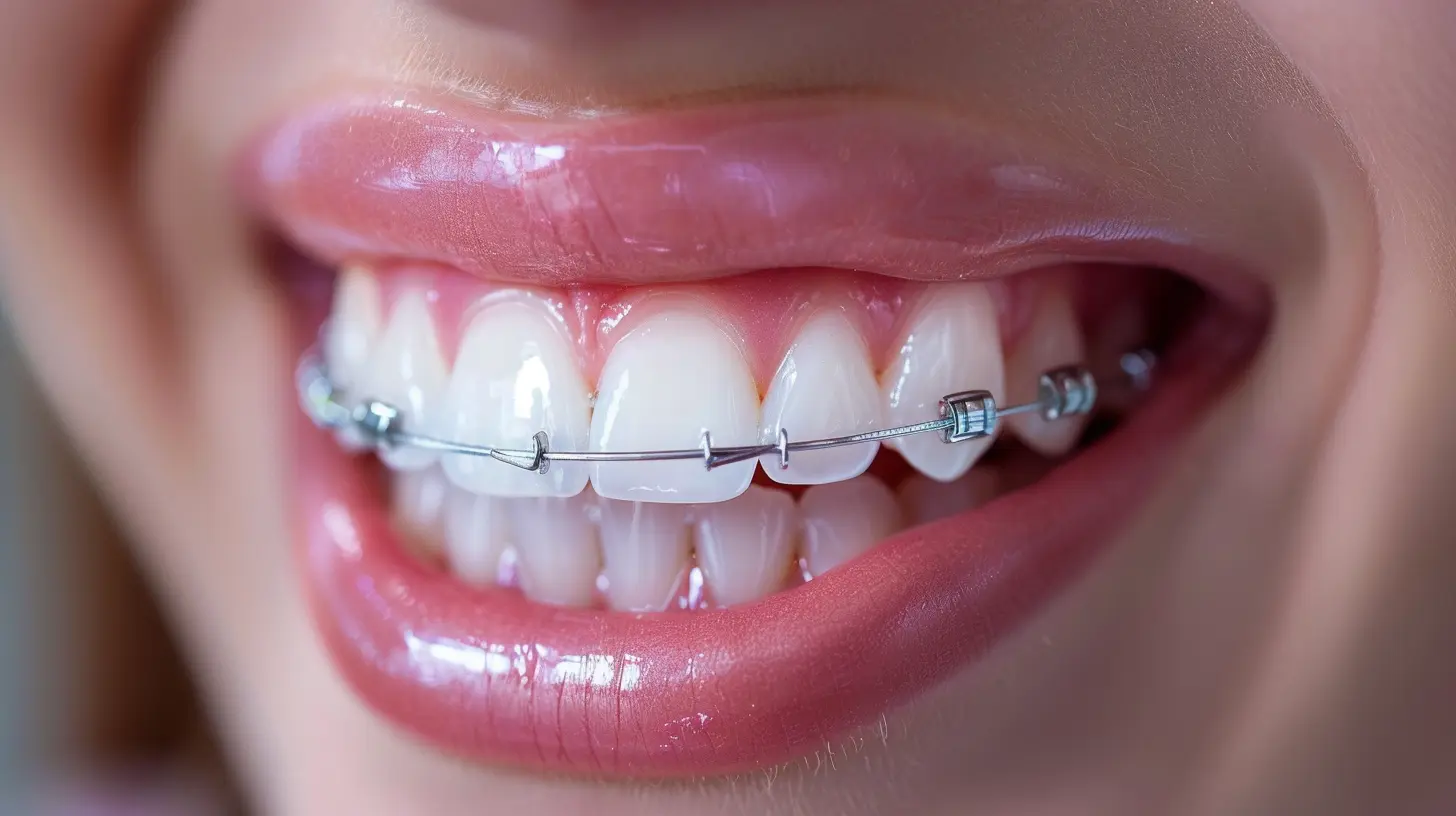Tips for Maintaining Oral Health with Braces
5 June 2025
Braces are a fantastic solution for achieving a beautiful, straight smile, but they also come with a unique set of challenges. If you have braces, you know that cleaning your teeth isn't as simple as before. Brackets and wires create nooks and crannies that food and plaque love to hide in, making oral care even more crucial.
But don't worry! With a little effort, the right tools, and some solid habits, keeping your teeth and gums healthy while wearing braces is completely doable. Let's dive into some essential tips to maintain your oral health with braces. 
1. Brush Like a Pro
Brushing with braces isn’t just about running a toothbrush over your teeth. You need to be extra thorough to clear food particles and plaque buildup.How to Brush Properly with Braces:
- Use a Soft-Bristled Toothbrush – Hard bristles can damage your brackets and irritate your gums.- Brush at an Angle – Hold the toothbrush at a 45-degree angle to clean around the brackets and under the wires effectively.
- Brush After Every Meal – Unlike people without braces, brushing twice a day isn't enough. Food tends to get stuck easily, so brushing after each meal helps prevent cavities.
- Don’t Forget Your Gum Line – Plaque buildup around your gums can cause swelling and irritation.
A toothbrush alone may not cut it, so consider investing in an electric toothbrush for a deeper clean. 
2. Flossing: The Non-Negotiable Step
Flossing with braces can be tricky, but it's just as important as brushing. Since food can get lodged between your teeth and brackets, flossing daily prevents plaque buildup, cavities, and gum disease.Flossing Made Easier:
- Use a Floss Threader – This nifty tool helps you thread floss under the wires, making flossing less frustrating.- Try Orthodontic Floss – Some floss is specifically designed for people with braces, making the process smoother.
- Consider a Water Flosser – A water flosser (like a Waterpik) is an excellent alternative that blasts away debris without the hassle of threading floss through each tooth.
Even if flossing takes extra time, your teeth will thank you when your braces finally come off! 
3. Pick the Right Toothpaste and Mouthwash
Not all oral care products are created equal, especially when you have braces.- Fluoride Toothpaste – Fluoride strengthens enamel and helps prevent cavities.
- Alcohol-Free Mouthwash – Alcohol-based mouthwashes can dry out your mouth, increasing cavity risk. Choose a fluoride mouthwash to offer extra protection.
Using the right products ensures your teeth stay strong and healthy throughout your orthodontic journey. 
4. Watch What You Eat
Braces come with a list of foods that can cause trouble. Certain foods can damage your brackets, making your treatment last longer.Foods to Avoid:
- Hard Foods: Nuts, popcorn, hard candies, and ice can break brackets.- Sticky Foods: Caramels, gum, and chewy candies can get stuck in your braces.
- Sugary Foods: Excess sugars increase plaque buildup, leading to cavities.
Braces-Friendly Foods:
- Soft fruits (bananas, berries)- Cooked vegetables
- Dairy products (yogurt, cheese)
- Soft grains (rice, pasta)
- Tender meats (chicken, fish)
That doesn’t mean you can’t enjoy snacks—but choose wisely!
5. Stay Hydrated
Drinking plenty of water isn't just great for your body—it also benefits your teeth. Water washes away food particles and bacteria, preventing plaque buildup. Plus, it helps neutralize acids that can cause tooth decay.If you drink acidic or sugary beverages (soda, juice), always rinse your mouth with water afterwards. Your teeth will thank you!
6. Be Gentle with Your Braces
Braces are durable, but they aren't indestructible. Biting into hard foods or using your teeth as tools (like to open packaging) can dislodge brackets or bend wires.If a wire pops out or a bracket breaks, don't panic. Cover any sharp edges with orthodontic wax and schedule an appointment with your orthodontist as soon as possible.
7. Schedule Regular Dental Checkups
Your orthodontist checks your braces, but your dentist ensures your teeth and gums stay healthy. Regular dental cleanings remove plaque buildup and prevent cavities.How Often Should You Visit the Dentist?
- Every 6 months for a routine cleaning (or more often if recommended).- Immediately if you notice gum swelling, unusual sensitivity, or persistent bad breath.
Your dentist can also offer fluoride treatments or other preventive care to keep your teeth strong.
8. Use Orthodontic Wax for Discomfort
Braces can sometimes cause irritation, especially when they're newly adjusted. Orthodontic wax acts as a cushion to prevent your brackets from rubbing against your cheeks and gums.How to Use Orthodontic Wax:
1. Wash your hands and dry your braces.2. Pinch a small amount of wax and roll it into a ball.
3. Press it onto any irritating bracket or wire.
This simple trick helps you avoid painful sores and discomfort.
9. Avoid Bad Habits
Certain habits can damage your braces and slow down your treatment progress.- Don’t Bite Your Nails – This can loosen your brackets.
- Avoid Chewing on Pens or Pencils – A common habit that can break your braces.
- No Ice Chewing – It’s tempting, but it can lead to serious damage.
Bad habits not only harm your braces but can also prolong your orthodontic treatment.
10. Patience is Key (But So Worth It!)
Let's face it—braces take some getting used to. They might feel uncomfortable at first, and maintaining oral hygiene requires extra effort. But remember, it’s temporary, and the results will be well worth it.By following these tips, you're setting yourself up for a healthier smile when your braces finally come off. So keep up the good work, and soon enough, you’ll enjoy a beautifully straight and healthy set of teeth!
Final Thoughts
Taking care of your teeth with braces might seem like a chore, but it's essential for preventing cavities, gum disease, and stains. A little extra effort now means a dazzling smile later. So stick with it, follow these tips, and before you know it, you’ll be showing off your perfect, brace-free grin!all images in this post were generated using AI tools
Category:
Healthy TeethAuthor:

Jackson Mahoney
Discussion
rate this article
2 comments
Arden Coffey
“Consistent care prevents issues; brush and floss daily!”
June 13, 2025 at 4:19 AM

Jackson Mahoney
Absolutely! Daily brushing and flossing are crucial for keeping your teeth and braces clean, helping to prevent dental issues. Thank you for emphasizing this important tip!
Lucas Frank
Regular cleaning and dietary choices are crucial for optimal braces care.
June 8, 2025 at 2:45 AM

Jackson Mahoney
Absolutely! Consistent cleaning and mindful dietary choices are essential for ensuring the best outcomes with braces. Thank you for highlighting that!


